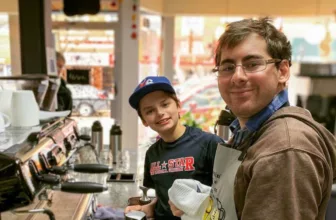
If someone you know has had a traumatic brain injury (TBI) knowing what to do to help them during their rehabilitation can be hard and the road to their recovery may be long and difficult. Quality support and care following a TBI are crucial for a successful transition back into everyday life, so here are a few ways in which you may be able to support a family member or friend who has sustained a brain injury.
Understand the Injury
There are generally three types of TBIs: closed TBI, open TBI, and Blast TBI. Closed head injuries are the most common as they include injuries such as concussions which can occur in a range of scenarios from contact sports to vehicle collisions.
Many changes can occur after a TBI including emotional, cognitive, and behavioral changes that can be difficult for all of those involved. Understanding what these changes are and preparing yourself for their potential occurrence is likely to make you a much more supportive and patient carer. Some of these changes may include:
Emotional
- Depression
- Anxiety
- Mood swings
- Post-traumatic stress disorder (PTSD)
Cognitive
- Executive dysfunction
- Memory problems – particularly short term
- Aphasia (language loss)
- Impaired reasoning and empathy
Behavioral
- Impulsiveness
- Irritability and aggression
- Apathy and loss of initiative
- Obsessive behavior
Practical Support
Practical support can range anywhere from doing odd jobs around the house to helping them to organize their finances after their accident. You may be able to help them to make a brain injury claim which may aid in paying for any treatment or rehab costs that may incur, as well as any time off work that your loved one is having to take.
Practical support may also be learning to modify your life to allow your loved one to slot back in. You don’t have to stop doing everything fun just because someone close to you has had a TBI, you may just have to do things a little differently. Ask your loved one what makes them anxious so that you can avoid these things but continue to spend time together doing some of your favorite things.
Emotional Support
Over 50% of TBI survivors experience depression within the first year of their injury so providing emotional support is a great way to ensure that your loved one is feeling safe and supported. Emotional support can include listening to your loved one and appreciating how they are feeling. You should try to be as patient as possible and believe their emotions and pain – being validated can make a world of difference to how a person is feeling about their condition.
Look After Yourself
Caregiver burnout is a result of mental, physical, and emotional exhaustion that has built up over time. Both paid and unpaid carers can experience this and it is important to remember to take time for yourself and find healthy ways to relieve your stress. If you are experiencing burnout you won’t be able to care for your loved one to the best of your abilities due to the intense physical and mental symptoms that you will be experiencing. As such, it is in the best interest of yourself and your loved one, for you to take a step away and relax. There are many support groups available that may be useful if you feel that you are experiencing burnout and attending these may help remind yourself that you are not alone.
Follow me down the rabbit hole!
I'm Alice and I live with a dizzying assortment of invisible disabilities, including ADHD and fibromyalgia. I write to raise awareness and end the stigma surrounding mental and chronic illnesses of all kinds.
Dr. Wilson graduated from Rosalind Franklin University of Medicine and Science and completed her residency in Internal Medicine at Advocate Good Shepherd Hospital in Barrington, IL. Dr. Wilson specializes in providing culturally competent and trauma-informed care to patients with physical disabilities. In addition to her private practice, she works as a science communicator, teaching health literacy to middle school and high school students in her local school district.









